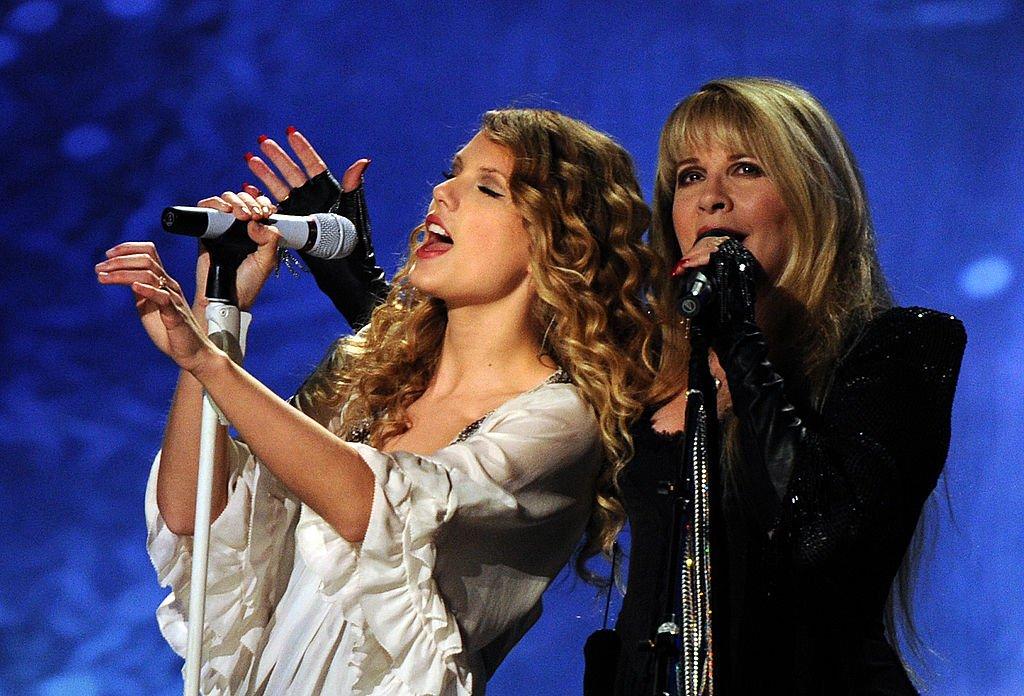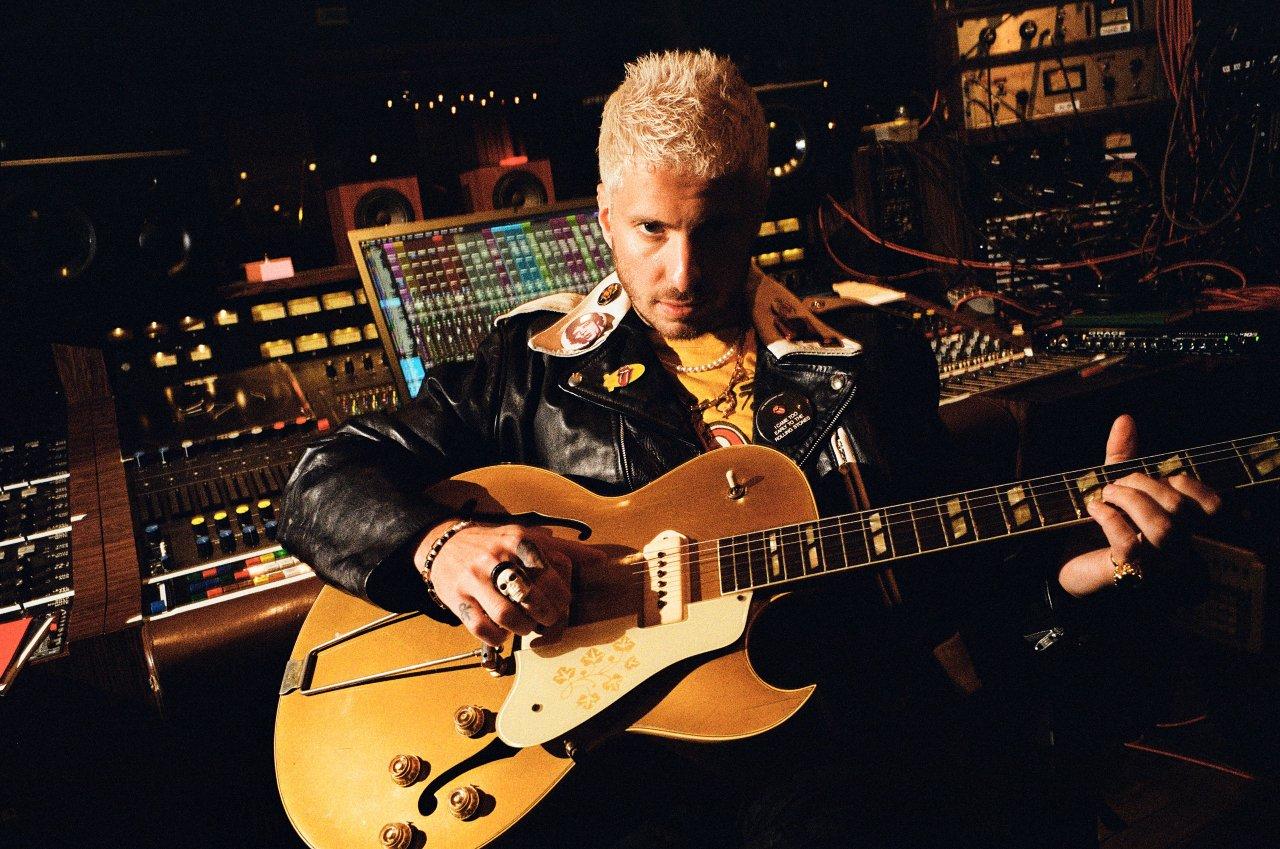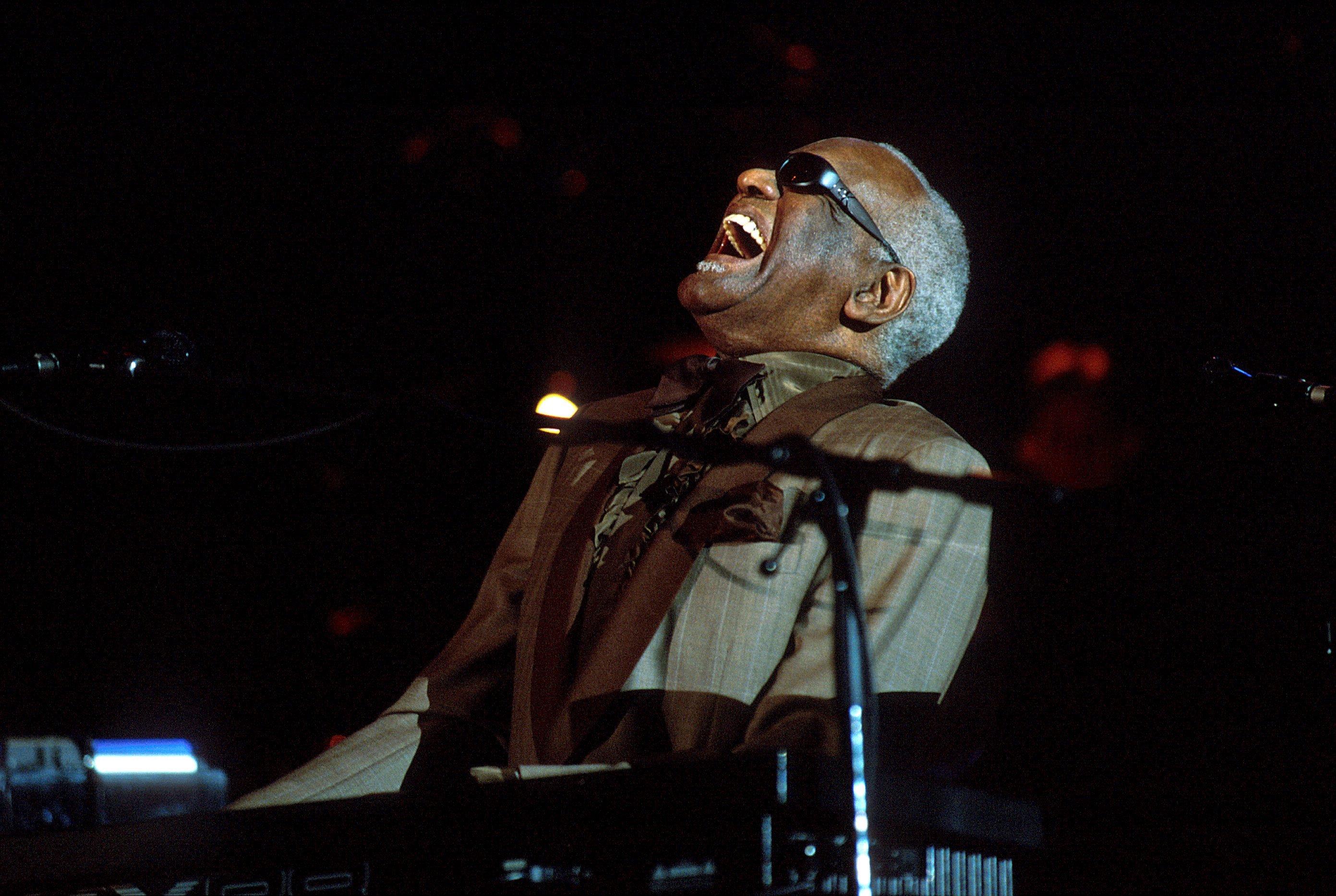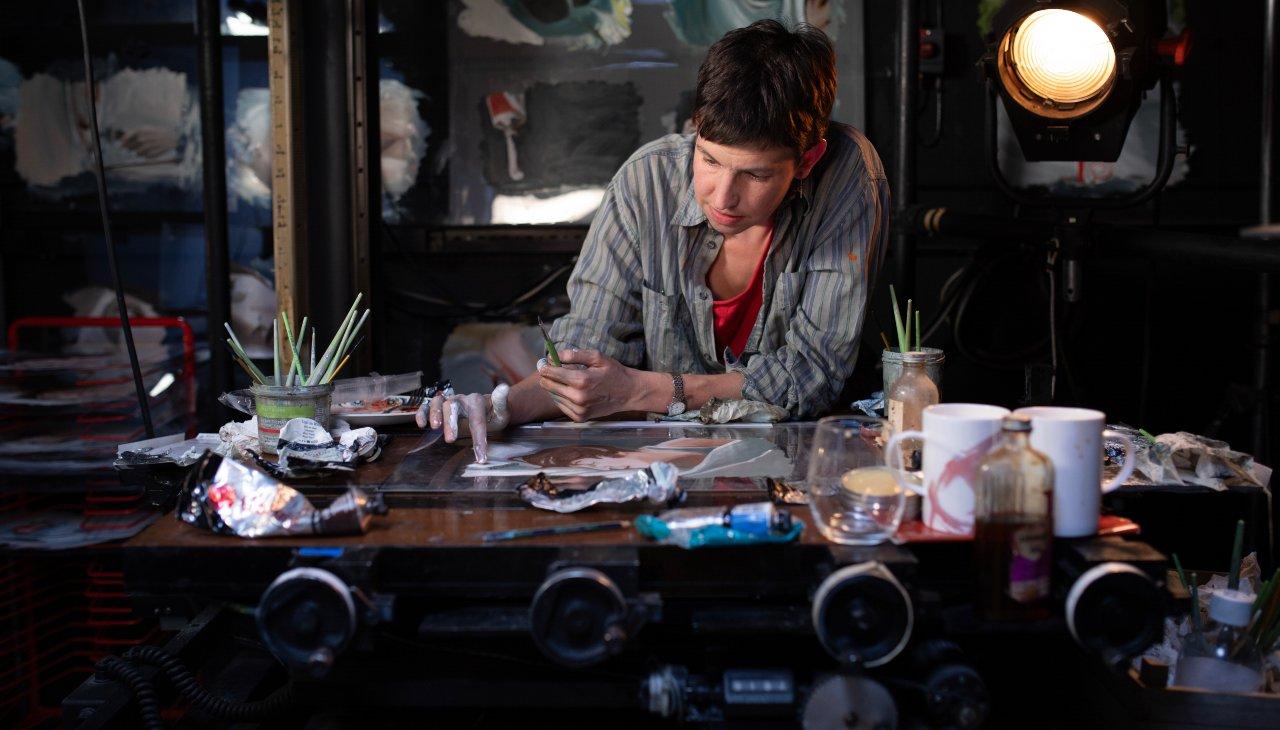(On Feb. 9 CBS will air "The Night That Changed America: A GRAMMY Salute To The Beatles," a TV special that will commemorate the Fab Four's U.S. debut on "The Ed Sullivan Show" 50 years ago. This piece originally was featured in the 56th GRAMMY Awards program book. Since publication, both Paul McCartney and Ringo Starr added to the Beatles' GRAMMY legacy with performances on the 56th GRAMMY Awards; for Starr, his first ever.)
The night after the GRAMMYs we will gather across the street from our home at Staples Center to record a very special GRAMMY/CBS television event, one that has been 50 years in the making. Many of you involved in this year's GRAMMY telecast will join us onstage as we commemorate what is generally accepted as one of the most impactful intersections of television and music: the 50th anniversary of the Beatles' debut on "The Ed Sullivan Show." Along with such epochal events as Elvis Presley's first television appearance, Michael Jackson's moonwalk on "Motown 25" and (we'd love to think) some of our more memorable "GRAMMY moments," the Beatles' first U.S. television appearance is one of those never-to-be-forgotten events.
The GRAMMYs' history with the Fab Four has had its own rich legacy of milestones. It's a history that began with the pre-recorded acceptance by the Beatles (along with Peter Sellers) of one of the first-ever Best New Artist GRAMMY Awards back in 1965, and not counting this year's show, has been marked by a number of significant appearances and tributes, most recently the amazing performance in 2012 of the finale of the Abbey Road album, which featured Paul McCartney joined onstage by Dave Grohl, Joe Walsh and Bruce Springsteen.
That particular journey began when Paul and his manager Scott Rodger called me two days before the 54th GRAMMY telecast to ask if I would be OK if Paul changed his performance from "Nineteen Hundred And Eighty Five" to the Abbey Road medley. Then to top it all off, when I overheard Paul mention at his Saturday rehearsal that "it would be great if Bruce joined us," I called Springsteen's manager Jon Landau and within an hour we had upgraded an already great six minutes of show to a performance for the ages.
What has happened in the years between that Best New Artist GRAMMY and the 54th GRAMMY telecast is a fascinating story that follows the progression of popular music over that same period.
Five years before I began my 34-year run producing the GRAMMY Awards, as a fan of the show and certainly of music, I was haunted by one pair of presenters. It was so iconic and so impactful that to this day I can tell you what each of them was wearing the night that John Lennon (in a beret and accompanied by his friend Paul Simon) agreed to present the Record Of The Year GRAMMY back in 1975 (an award which, by the way, went to Olivia Newton-John for "I Honestly Love You"). For many years, I thought that was the first in-person appearance by a Beatle at the GRAMMYs, but later I learned that both Ringo and Paul had preceded John to the show — Paul accepting the GRAMMY for Let It Be in 1971 and Ringo presenting Best R&B Vocal Performance, Male in 1973 with Harry Nilsson. It should be noted that though George Harrison's The Concert For Bangla Desh won the GRAMMY for Album Of The Year at the 15th GRAMMY Awards in 1973, George wasn't there to accept and remains (unfortunately) the only Beatle never to have graced the GRAMMY stage.
Considering the all too brief life span of the Beatles as a recording group (less than 10 years), the fact is that individually or collectively they have been involved in numerous GRAMMY Award presentations, amassed more than 100 nominations and 26 wins, and have a collective 15 entries as a band in the highly esteemed GRAMMY Hall Of Fame. Their GRAMMY achievements are singular.
And of course, that's not to say that the GRAMMY telecast itself has been devoid of the timeless songs written by the Beatles over nearly five decades. Among the Beatles compositions performed over the years, several stand out, the first being an incredible performance of "Come Together" by Aerosmith. I can remember that night like it was yesterday.
It was 1991 and we were honoring John Lennon with a Lifetime Achievement Award, and Steven Tyler and Co. had agreed to perform that amazing song in tribute to John. That performance is talked about to this day, not only because it was a great performance, but also because at one point in the song Steven launched what appeared to be the biggest loogie ever projected on network TV, surpassing any Major League Baseball tobacco chewer by at least 20 feet. Oh yes, and then there was a very beautiful performance of "Imagine" by Tracy Chapman.
Actually, my first experience with John's legacy occurred in 1982, my third GRAMMY show and the year that John and Yoko's Double Fantasy was honored with the GRAMMY for Album Of The Year. It was an incredibly emotional moment as Yoko, with young son Sean in tow, headed toward the stage just 14 months after John had been struck down in the street in front of their home at the Dakota in New York City. With tears in her eyes, and in the eyes of many in the audience, Yoko began by saying, "I think John is here with us today," which only heightened the moment, and then thanked everyone on behalf of the two of them, invoking the oft-repeated prayer for peace in the world. As she walked offstage, and though I had just met her one day prior, I put my arm around her as she hugged me — it was a hug that I haven't forgotten to this day.
In 1990 it was Paul's turn to be honored with a Lifetime Achievement Award, and with Meryl Streep — someone obviously in awe of her subject — doing the introduction, we began to build a piano-driven piece that would feature performances by Stevie Wonder ("We Can Work It Out") and Ray Charles ("Eleanor Rigby"). Paul never did play that night, but has since graced us with several remarkable GRAMMY moments, including a mashup of "Yesterday" with Jay Z and Linkin Park in 2006, and the never-to-be-forgotten GRAMMY finale in 2012.
And speaking of Beatles songs performed by acts other than the Beatles themselves, in 2005, in response to the then-recent tragic tsunami in Thailand and Southeast Asia, we decided to do one of the first fundraising events in conjunction with iTunes by gathering an all-star group of GRAMMY performers to sing "Across The Universe," certainly a fitting song thematically and one that ultimately raised a significant amount of relief funds. Taking part were Billie Joe Armstrong, Bono, Norah Jones, Alicia Keys, Alison Krauss, Steven Tyler, Brian Wilson, and Stevie Wonder. The download (with all funds going to charity) became one of the highest-charting downloads for a charity recording to that date, not to mention that it garnered some very warm GRAMMY love by fans and critics alike. And the whole time we were doing it I kept thinking back to "Come Together: A Night For John Lennon's Words And Music," a TV special that Yoko Ono and I had done just three weeks after Sept. 11 as a tribute to John and his love of New York City, where that song had been performed so beautifully by Sean Lennon and Rufus Wainwright. I often think back to that show, the first to have been held at Radio City Music Hall, in fact the first show open to the public, just weeks after the tragic events of Sept. 11, and of the determination shown by Yoko to put that show on as a sign of John's love for the city. She kept saying, "John would have loved tonight, to have seen people coming together in peace after such sadness."
While Paul is the only Beatle who has performed on the GRAMMYs, Ringo leads the pack with the most appearances on the show without performing, beginning in 1973 when he accepted the GRAMMY for Album Of The Year for The Concert For Bangla Desh, and presented the GRAMMY for Best R&B Vocal Performance, Male alongside Harry Nilsson, and then again in 1977 when he joined Paul Williams to present the GRAMMY for Best Pop Vocal Performance, Female. As recently as 2010 he joined fellow legend Smokey Robinson to present the nominees for Record Of The Year at our GRAMMY nominations special.
All of which brings us to celebrating the anniversary of the Beatles on "The Ed Sullivan Show" as a very special GRAMMY event. Four months ago on the Emmy Awards (which my company produced for CBS), we presented a segment that connected the assassination of John F. Kennedy some 50 years ago to the Beatles' first appearance on the Sullivan show literally 79 days later. The point being that America, and the world for that matter, went from the moment of our greatest collective sadness to a time when we could begin to emerge from our period of mourning into a time of great creativity, cultural richness and musical brilliance, all influenced by the Beatles. That event was the stimulus for "The Beatles: The Night That Changed America," the title of our special tribute that will air on CBS on Feb. 9, 50 years to the date since the Beatles' first Ed Sullivan appearance.
Being of a certain age, I can't deny both an emotional and an intellectual attachment to the Beatles and what they've meant to popular culture over the past 50 years. I remember going into my neighborhood hi-fi (yep) store to buy my first-ever component system so that I could go next door and buy Meet The Beatles, carefully remove the precious vinyl from the paper sleeve and gently put it on the turntable. In a moment of weakness, I actually confessed to Paul many years later that I applied for the job as their manager during an open solicitation that followed the death of Brian Epstein in the late '60s. I've wooed and won my wife, lullabied and danced with my kids, and sadly buried family members and friends to Beatles songs over the past 50 years. And like all of you, even though I didn't, I felt I knew them through their music. To have had the opportunity of doing one television special with Ringo (with a cameo appearance by George), our post Sept. 11 tribute to John with Yoko, and numerous appearances in recent years with Paul, I have been able to live out moments that I only could have dreamed of years ago, but in all honesty, never thought would actually take place.
Having Paul and Ringo and Yoko Ono and Olivia Harrison with us at this year's GRAMMYs, and then having the chance to commemorate the Beatles' appearance on "The Ed Sullivan Show," means a great deal to us, and we are grateful for their cooperation in both events. Their musical legacy is our musical legacy, and no doubt will continue to be as long as people can still push play and hear "yeah yeah yeah."
Thank you John, Paul, George, and Ringo for a lifetime of music and memories.
(Ken Ehrlich has produced the GRAMMY Awards since 1980. His company, AEG Ehrlich Ventures, is responsible for hundreds of hours of memorable television productions and his love for music is what has kept him connected to multiple generations of musical artists in all genres. He wants to thank his friends at The Recording Academy, CBS, the thousands of artists with whom he's worked over the years, and in particular his loyal staff who have worked with him all these years to create what have come to be called "GRAMMY Moments." Ehrlich is the executive producer for "The Beatles: The Night That Changed America — A GRAMMY Salute.")




